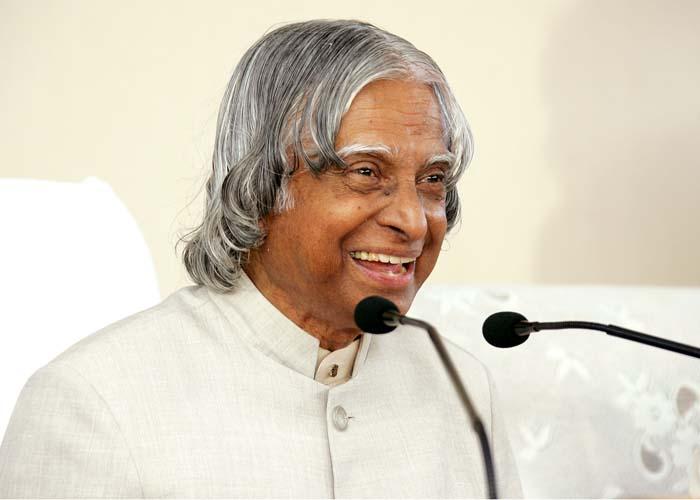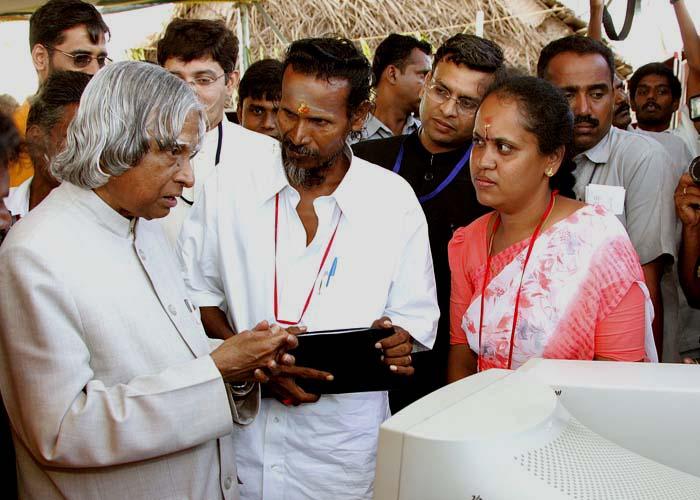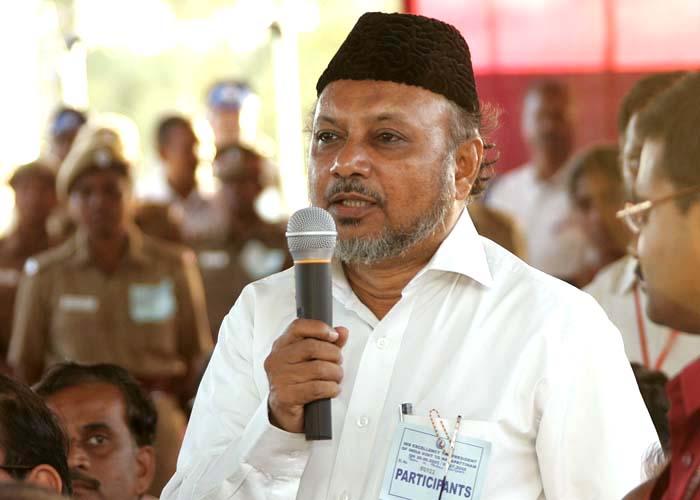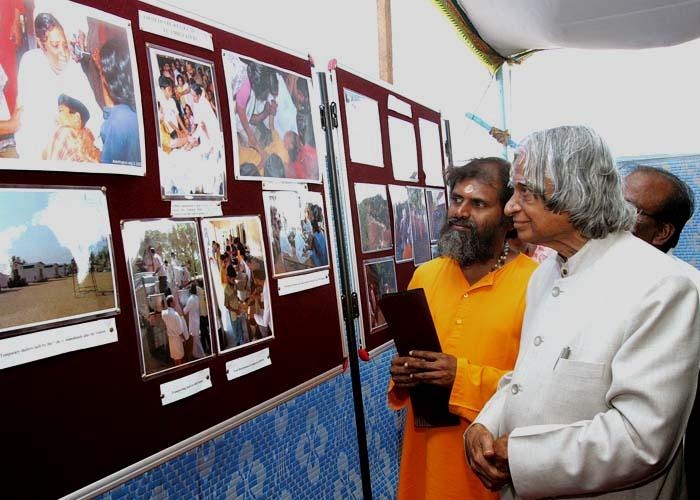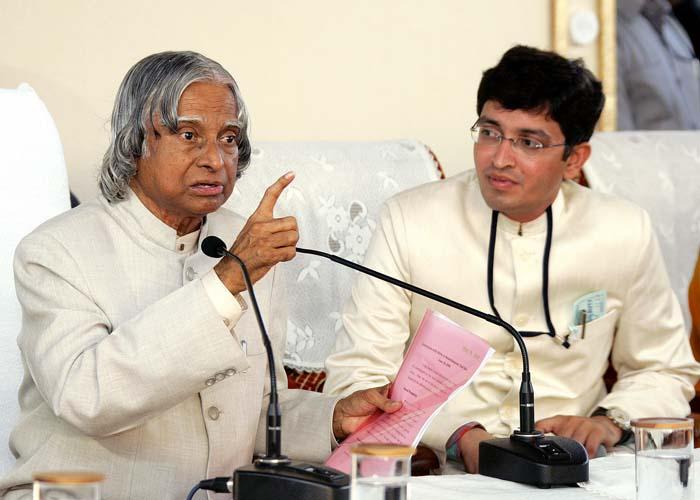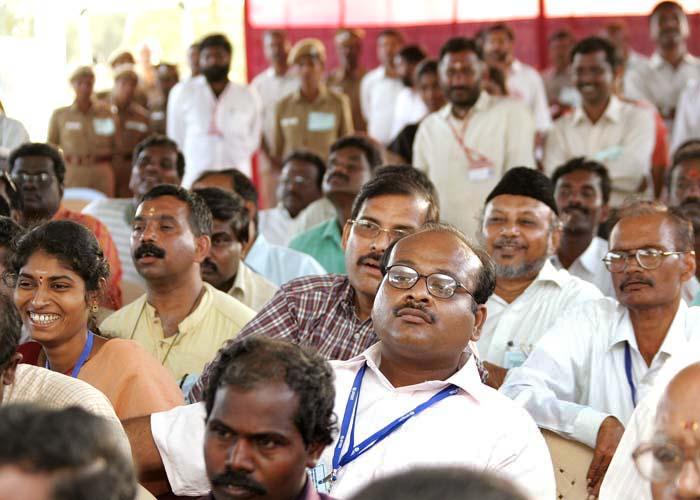Interaction With Ngos at Samanthanpettai, Tamil Nadu
Tamil Nadu : 30-06-2005
I am happy to meet all of you here today. You have all contributed in the relief operations of Tsunami affected areas. Now, we are in the process of building permanent homes for the affected population. My greetings to all of you.
Rural Prosperity
As you are all aware, nearly 700 million people of India live in the rural areas in 600,000 villages comprising of 200,000 Panchayats. Connectivity of village complexes providing economic opportunities to all segments of people is an urgent need to bridge the rural-urban divide, generate employment and enhance rural prosperity. Repeating what we are doing for several decades with more of the same, may not be the way to proceed further. We need innovation and transparent performance in our action.
What one should be remembered for?
I generally assume that most of the NGOs, have a purpose in life and would like to contribute to the welfare of the society. The motto of the NGO can be "what I should be remembered for."
One study on the contribution of NGO reveals that the certain amount of funds from foreign contributors and grants-in-aid from various departments are being deployed on a yearly basis. However the impact of this investment is not reaching the grass root level in the villages to the expected degree. The study indicates that large contributions of societal work of NGOs are visible in certain states. I would request the NGOs and rural development agencies to show their societal spirit, their entrepreneurial spirit, mission oriented approach and assist in rural transformation. Life has offered us an excellent opportunity. There is no great challenge in treading the well laid out path. Rural NGOs have to create a new path. What are the new paths?
The mission of NGO
The study of nearly 12,300 NGOs profile spread in different parts of the country indicates that they are engaged in tasks such as rural housing, rural sanitation, watershed development, irrigation and drinking water, organic farming, agriculture products improvement etc. Also, I find that the funding for the NGOs is coming from multiple ministries and departments such as Health and Family Welfare, Rural Development, Human Resource Development etc. The average total funding from various ministries and departments during any financial year to the NGOs works out to the order of Rs. 500 crore. In addition, NGOs receive foreign contributions to an extent of Rs. 4000 crore. I was thinking how this large network of committed institutions can be used for rural development at a faster rate. Since the representatives of nearly two thousand five hundred NGOs have assembled here, I would like to share some of the thoughts on how NGOs can be a partner in the rural development with government agencies. Firstly, NGOs must be ready to find new paths of development instead of following the already repeated path. Secondly, the NGOs or the Government agencies when they leave the scene of development; the development initiated has to be made self-supporting and maintaining. Thirdly, there will be a tendency to take up development in relatively developed states or closer to the urban areas. They are not real challenges. The real challenge lies in working in areas like this.
Contribution of NGOs for Tsunami Relief
I understand that more than 419 NGOs have undertaken the construction of 85% of the temporary shelters. 37 NGOs have been allotted habitation for construction of permanent shelters. TATA Relief Committee has set up Rural Knowledge Centre at Akkaraipettai in coordination with ISRO. Rain shelter is being constructed by TATA Relief Committee at Akkaraipettai. Desalination plants have been erected at ten locations and a number of Anganwadi centre has been constructed by TERT. CII is sponsoring construction of fish auction hall, citizen information centres and schools.
Suggestions for NGOs
In summary, I have a few suggestions for the NGOs.
1. Rural development through PURA mechanism will lead to minimum cost and minimum time in execution of the rural development missions.
2. A master plan is essential for development of rural cluster complexes. NGOs can help in initial identification and preparation of master plan.
3. NGOs can facilitate in the preparation of business plans for each of the PURAs particularly, it should be suitable to ambience of Nagapattinam area, where there is sea coast and connected business and also tourist centres and above all reconstruction of permanent habitat is progressing. So, linking all these PURA should get evolved with focus on employment generation through Physical connectivity, Electronic connectivity, Knowledge connectivity leading to the Economic connectivity. This will result in rural prosperity.
4. Rural Development is a very important mission. The funds allotted to various agencies have to be properly used for the mission and accounted, the results should be seen by the people. A transparent management and performance system is essential.
5. NGOs should become Societal Transformers as has been done during the Tsunami Relief Operations.
Righteousness
Particularly, people who are working in societal transformation have to have a unique quality. I am sure allof your are having it. One of the greatest quality is righteousness. A beautiful divine hymn about righteousness which I heard somewhere, now let us all recite it together.
Righteousness
Where there is righteousness in the heart,
There is beauty in the character.
When there is beauty in the character,
there is harmony in the home.
When there is harmony in the home,
There is order in the nation.
When there is order in the nation,
There is peace in the world.
It is a beautiful connectivity between heart, character, nation and the world. In a society we have to build righteousness among all its constituents. For the society as a whole to be righteous we need creation of righteousness in family, righteousness in education, righteousness in service, righteousness in career, righteousness in business & industry, righteousness in civil administration, righteousness in politics, righteousness in government, righteousness in law and order, righteousness in justice. In addition to righteousness in multiple dimensions in the society, indomitable spirit is essential for realizing the vision of developed India.
My best wishes to you all.

